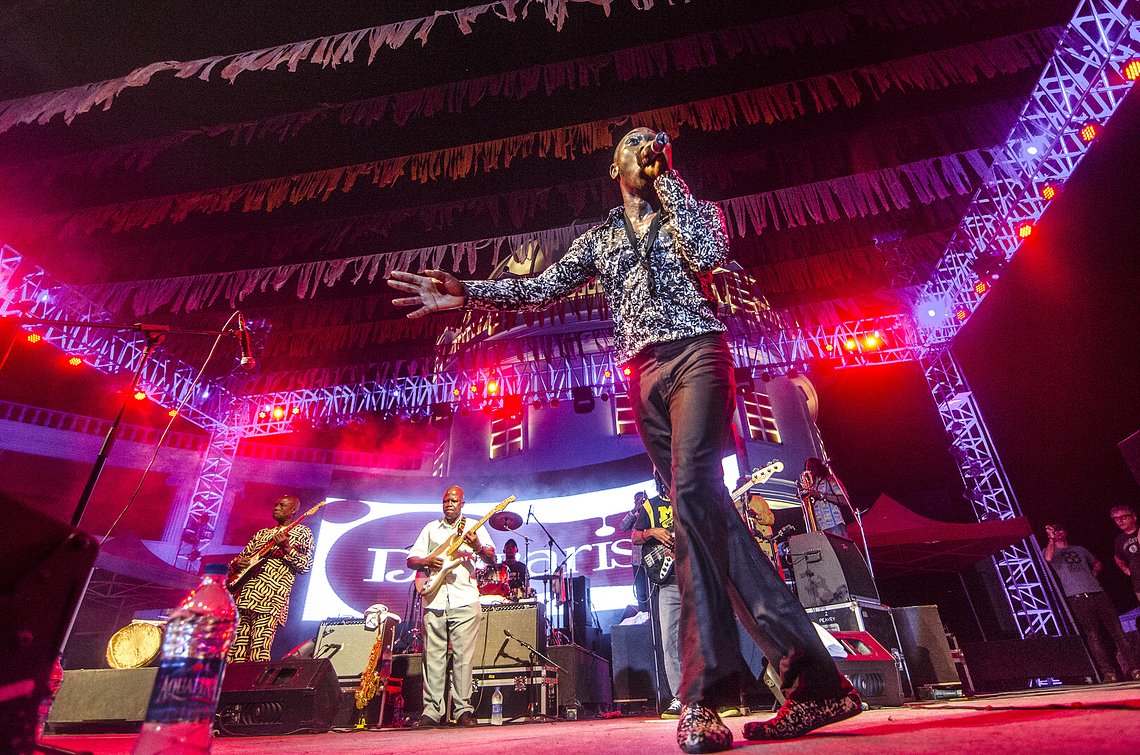Where did afrobeats originate from, and why is it so popular?
Afrobeat: a man, the music, and the movement

Posted on Thu 26 Jan 2023
In music and in life, how much difference does a single letter make? The short answer is: quite a bit, judging by the frequent confusion over the origins and nature of afrobeats, which can be described not necessarily as a style or genre in and of itself, but instead as an overarching term for relatively recent popular music from West Africa and the diaspora.
Afrobeat: a man, the music, and the movement
What do we mean, exactly, when we talk about the difference made by a single letter? Well, the distinctly 2000s and 2010s phenomenon of afrobeats has been confused by some with the much older, 20th-century Nigerian music genre of afrobeat.
The earlier of the two movements is much more definitively linked to a single pioneer, the late Nigerian musician, bandleader, composer, and political activist, Fela Aníkúlápó Kuti.
During the 1960s, the son of Nigerian women’s rights activist Funmilayo Ransome-Kuti cultivated a kind of African pop that was also powerfully purposeful. His Kalakuta Republic communal compound and recording studio in Lagos came to represent – in the words of Robin Scher for HuffPost – “his somewhat autonomous dominion, free of the oppressive rule of the local authorities.”
The link from afrobeat to afrobeats – and how it changed history
Dedicated to exposing the corruption of the Nigerian government and the mistreatment of his compatriots, Kuti gave his country so much more than a sound – but what a sound it was. With its combination of West African musical styles such as traditional Yoruba music and highlife, influenced further by American funk, jazz and soul, afrobeat permeated beyond Nigeria’s borders, and helped empower a generation.
By contrast, the term “afrobeats” – with the ‘s’ – ultimately refers not to one genre of music, but to a fusion of sounds that have emerged out of Nigeria and Ghana over the last few decades. The UK has also played a major part in the rise of afrobeats, as spotlighted by – among other sources – an article in The Guardian in 2012, which hailed it as “the new sound of the UK underground”.
That particular article, entitled “The rise of afrobeats”, caused some commotion, given how expressly it connected the movement to one man: Abrantee Boateng, professionally known as DJ Abrantee, who The Guardian writer Dan Hancox said “gave the name ‘Afrobeats’ to the hottest scene in the UK right now.”
The resultant angry backlash prompted some clarification from Abrantee, who stated that “I cannot say I invented afrobeats. Afrobeats was invented before I was born. It was invented by Fela Kuti.
“But what you’ve got to remember is the genre of music artists themselves are now producing – the likes of Wizkid, Ice Prince, P-Squared, Castro, May7ven – are calling their music afrobeats. So, that’s what I call it when I put them on my mixtapes.”
While, then, it is important to appreciate that afrobeat and afrobeats are two distinct entities, even some of the key players behind the 21st-century genre have recognised some level of affinity between the two.
Afrobeats, though, hasn’t merely come to enjoy popularity on the basis of its historical roots; it is also a sound that is relevant and relatable to young people in the present day.
Or as DJ Abrantee has put it: “This Afrobeats sound is different, it’s intertwined with things like hip-hop and funky house, and there’s more of a young feel to it… I see afrobeats as music which makes the heart beat. And it’s funky, and hyped, and energetic and young.”
How can you immerse yourself more in the afrobeats sound and aesthetic?
There is much more to be learned about the afrobeats ethos and sensibility than everything we detailed above. However, for the most authentic evidence of what the genre stands for and the reasons for its popularity, we suggest you head out into the nightlife.
Right here at Supa Dupa Fly, for instance, we have the listings that will keep you informed of your options for attending an afrobeats night in London that will enable you to understand and feel so much closer to this addictive sound. And in the meantime, why not check out this NME rundown of 20 seminal songs that – together – helped shape and tell the story of afrobeats?


